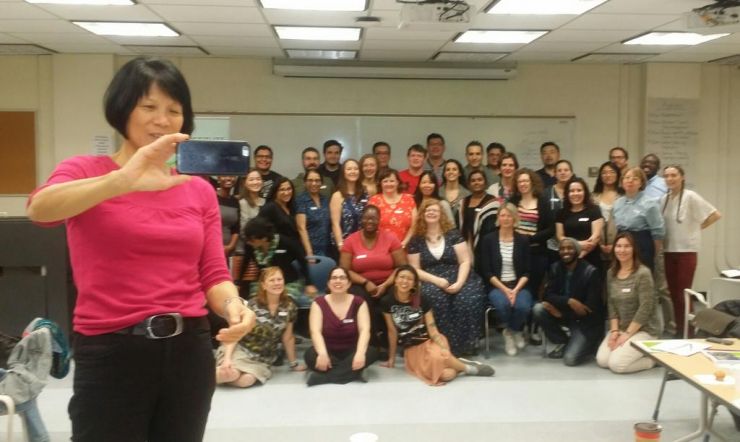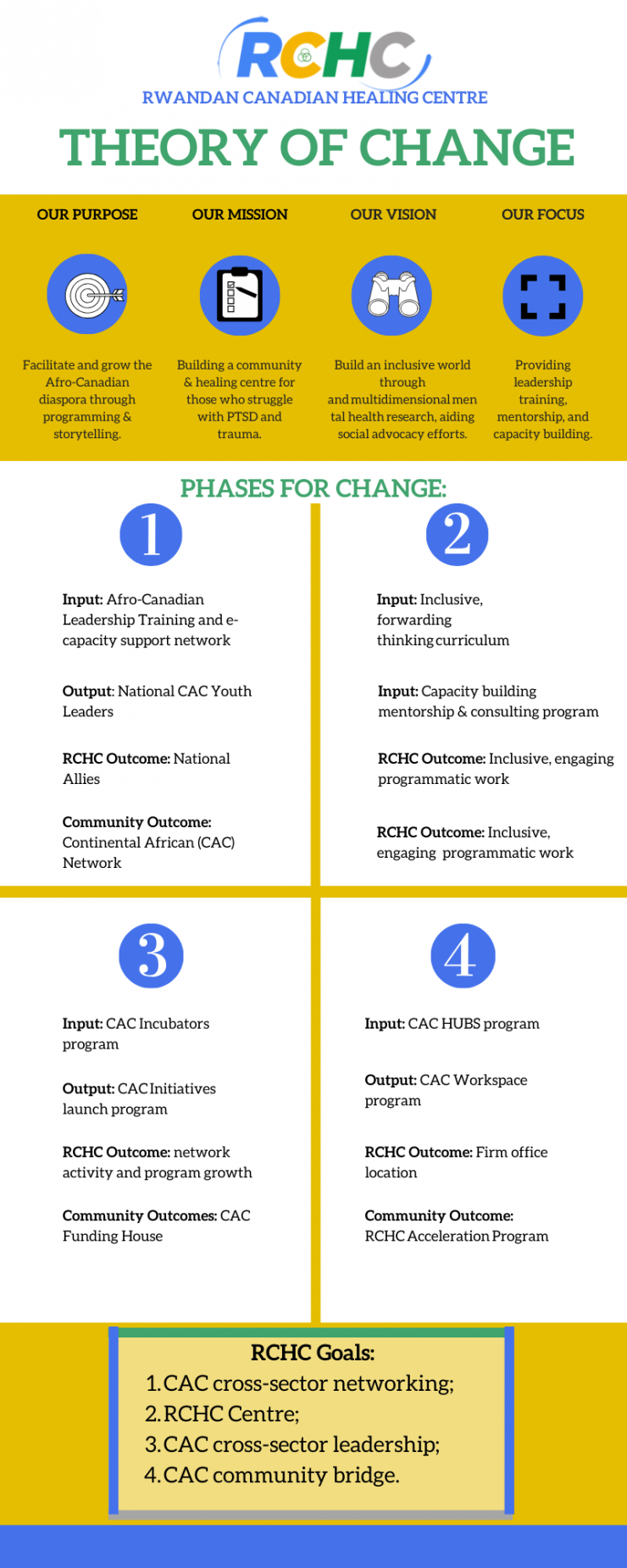Anti-Poverty Curriculum: Identifying Issues and Developing Future Leaders
By Kizito Musabimana

Identifying individual and community issues and developing future leaders through focused Vision Crafting.
Solving a problem requires a deep understanding of its cause and the current conditions which allow for its continuing effects. In our program, we strive to offer understanding to individuals regarding issues and circumstances, specifically within the African Canadian population.
We know that past experiences shape our reality when it comes to relationships, production, creativity, mindset and personal health. We also know that part of overcoming these challenges is facing them head on. RCHC encourages people – particularly those of the African descent – to face their fears, challenge their life struggles, deal with wounds created by historical trauma and combat poverty. These issues often lead to a lack of work-life balance. Through this program, we want to offer the knowledge and skills needed to help individuals gain a thorough understanding of the community’s past records, its current condition, and its potential, as well as opportunities for collaboration across the country, continent and globe.
First, we work to identify the challenges that each community faces through various outreach programs and events. This gives us a first-hand understanding of the needs within each community.
Next, we work to recruit future leaders from these areas, who are either individuals directly affected by, or understand the issues firsthand, or are invested as leaders or members actively working to solve the issues at hand.
Then, we engage participants in activities designed to create their narratives – their Theory of Change. (LINK TO TRAINING PAGE)
Lastly, we provide introductory training where participants are given an overview of the needs, challenges, and causes of issues on an individual and community level.
As of October 2016, according to the United Nations’ Working Group of Experts on People of African Descent, “Despite Canada’s reputation for promoting multiculturalism and diversity…Canada’s history of enslavement, racial segregation, and marginalization, has had a deleterious impact on people of African descent which must be addressed in partnership with communities.”
Mindset and Vision
Through the Vision Crafting curriculum is the main course for our anti-poverty program. Its purpose is to work with individuals to shape self-governed individuals, communities and organizations.
Throughout this course, our goal is to challenge aspiring leaders to enter uncharted territory. Along the way, leading experts guide them on a day-to-day basis. Experts support the participants through any challenges and help them discover their life visions.
The mindset and vision curriculum will engage members in daily reading, journaling, and ongoing vision-shaping activities such as think tank sessions, debates, public speaking and vision presentation event, as well as community organization/social enterprise and business startup activities.
The goal is to understand the African Canadian community’s current position in both historical and global contexts, and work with members on individual, organization and international levels to create a better version of the community’s story through individual and collaborated actions.
The core values in crafting a vision should be the following: embracing a long-term view, taking actions that help bring prosperity to our surroundings, contributing to the environment and working towards a just and socially-balanced world for all.
The biggest challenges many builders in African Communities face at a global scare is that most collaborations are started with people or entities that hold different mindsets. Thinking long-term, it’s unrealistic for two or more entities or individuals with drastically different visions to form lasting collaborations. Though it can prove to be a productive partnership for two entities who understand their destiny - even if there are different poles, cooperation is only possible for a short while. Many African communities is that many don’t have visions beyond 50 to 200 years, which means they don’t have a truly broad view of their goals. Thus, insecurity, disagreements, corruption, and distrust break up many partnerships prematurely.
The Vision Crafting Curriculum will offer a new perspective and demonstrate the amount of time, space, and resources available to achieve success. Rather than trying to achieve our ultimate goal today or tomorrow, we must think ahead to the next 200+ years. We believe that building this kind of mindset is crucial to carrying out a vision for individuals and organizations within the African community. The African Canadian community wants to lead the movement in connecting like-minded groups through organized networks, platforms and conglomerates to achieve long-term goals.
Resource and Capacity
After completing the one-year vision crafting curriculum or a similar external program, individuals will be evaluated to determine their knowledge, skills, capacity and, more importantly, their mindset toward the future. Then, they will continue on to the acceleration part of the anti-poverty programs.
Today, platforms for Afro-Canadian youth across Canada are almost nonexistent – especially those dealing with specific areas such as cultural education, media, health and business. It is even more difficult for youth who have untreated mental health challenges or lack knowledge, skills or access to mentors. These individuals are likely to face social and economic discrimination when attempting to engage in solution enterprises. Those who desire to create the required platforms lack the resources and capacity to do so.
RCHC will work tirelessly to advocate for platforms to assist the youth in the African Canadian communities’ resource and capacity, so they are able to compete on an equal playing field.
Additionally, through our anti-poverty program, we will provide training to strengthen each individual’s creation of or access to resources, as well as capacity-building knowledge and skills.






